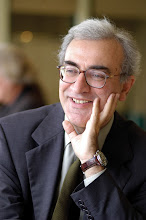"I am willing to listen to utilitarian arguments against redistribution (e.g., high marginal tax rates reduce the incentive to work, blah blah blah blah blah); I may not agree with them, but they are a plausible position. However, I have little patience for the idea that rich people deserve what they have because they worked for it. It’s just a question of how far back you are willing to acknowledge that chance enters the equation. If you are willing to acknowledge that chance determines who you are to begin with, then it becomes obvious (to me at least) that public policy cannot simply seek to level the playing field, because that will just endorse a system that produces good outcomes for the lucky (the smart and hard-working) and bad outcomes for the unlucky. Instead, fairness dictates that policy should attempt to improve outcomes for the unlucky, even if that requires hurting outcomes for the lucky. But given that society is controlled by the lucky, I’m not holding my breath."
2.11.09
É isto mesmo que eu penso
James Kwak diz exactamente o que penso muito melhor do que eu alguma vez seria capaz de fazer:
Subscrever:
Enviar feedback (Atom)




1 comentário:
Trata-se de uma teoria brilhante do tipo Santa Casa da Misericórdia.
Primeiro divide-se O mundo entre os lucky e os unlucky e depois redistribui-se.
As aplicações conhecidas funcionam assim: a uns quantos sai a sorte grande e aos totalmente desprovidos é dada alguma assistência.Tudo isto com o dinheiro dos papalvos que compraram as cautelas.
Claro que os donos do jogo, os que comandam a "redistribuição", têm uma vida de nababod.
Enviar um comentário